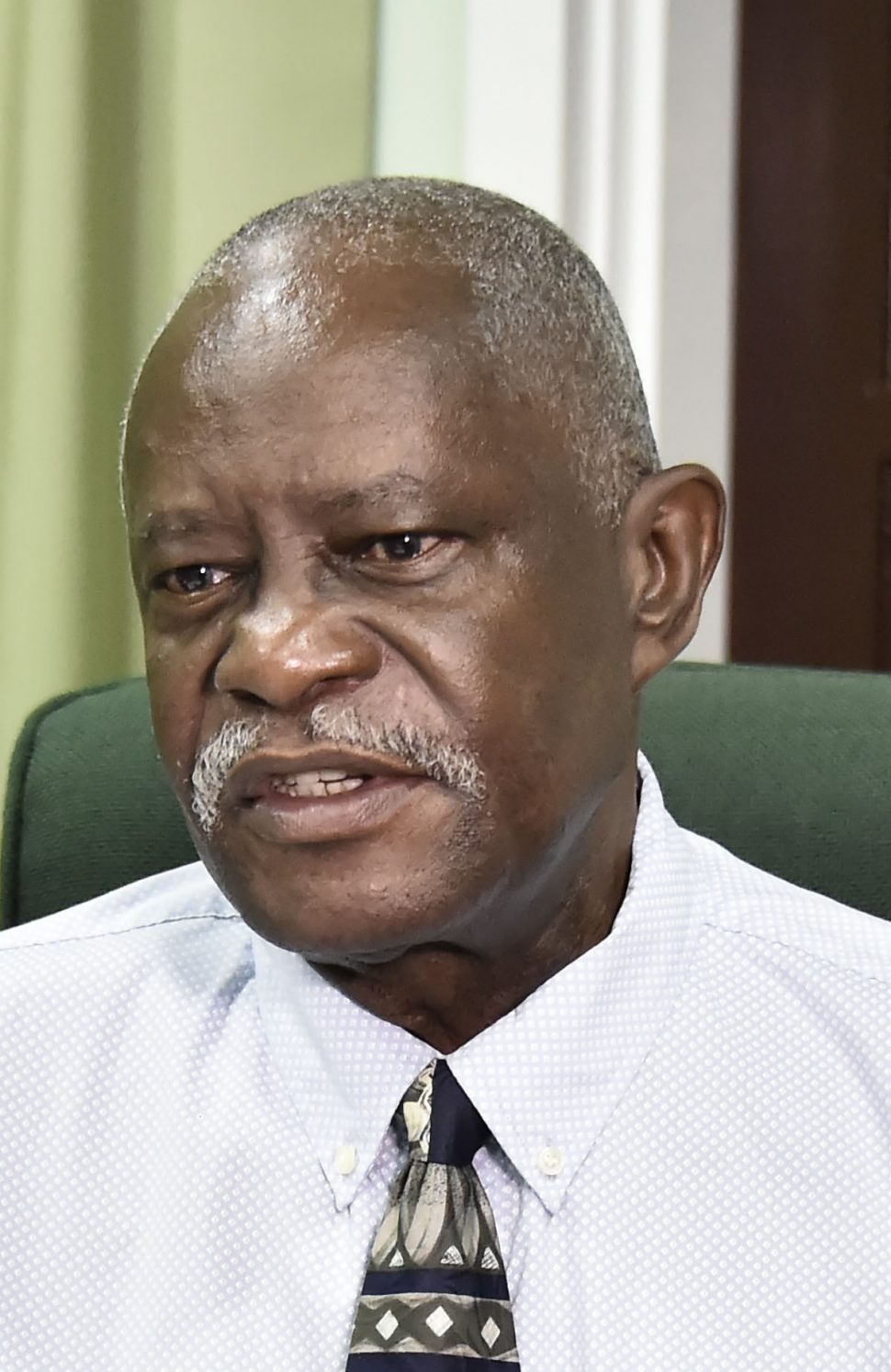A porous border and limited human resources hamper lawmen and immigration officers from addressing the suspected illegal movement of Haitians across Guyana’s territorial boundaries, Minister of Citizenship Winston Felix has said.
He told Stabroek News on Thursday that with a number of unofficial crossings on the eastern, western and southern borders of Guyana, persons can easily make their way to another territory.
Felix was asked what is being done to address the suspected illegal movement of Haitians across Guyana’s borders, mainly at Lethem, which is located in close proximity to Brazil. Stabroek News has previously reported that Haitians, after arriving here, move rapidly to exit the country via Lethem.
Felix told Stabroek News on Thursday that while some would leave the country legally, there are many who leave via unofficial crossings on the Corentyne and Lethem ends.
“Our borders are wide and do not lend to prevent people from leaving. We have done a lot but we do not have the resources to maintain these operations. Those who are caught leaving illegally are placed before the courts,” he said.
The minister explained further that in Region Nine, there are many areas where persons can leave without law enforcement officers being aware of their movements. He added that some persons would opt to cross over the Takutu Bridge at nights after the daily operations of immigration officers have ceased. Further, he explained that persons can travel to different parts of the region and cross via boat over the Ireng River or walk across during the dry season.
“There are points where people cross at nights and, in the dry season, it is easier for them to cross. Policemen are not always at these locations and the stations are distances away from where this is happening. The borders are wide. That makes [it] unpredictable to know where people are crossing and stop them,” he emphasised.
Additionally, Felix explained that patrolling the eastern border is also a challenge since local law enforcement cannot move freely on the Corentyne River, which is owned by Suriname. He noted that like Region Nine, the Corentyne River has wide spaces from Number 63 village to Moleson Creek and beyond.
“The wide and open spaces put Guyana at a disadvantage. It is not easy to patrol. As police, we mobilise resources and conduct operations but you cannot sustain them. The backtrack operation has been around for years and it had been very difficult to prevent it,” Felix indicated.
The minister added further that the situation at hand is and “unfortunate” issue. “It is not that easy to deal with,” he said.
On Tuesday, Felix, in an interview with the Ministry of the Presidency (MOTP), said that for the period January to July this year, 8,476 Haitians arrived in Guyana and 1,170 departed the country. Forty-eight were refused leave to enter on landing, he said.
“No one would deny that Haitians are one of the higher numbers arriving in Guyana from around the Caribbean, but the records produced by [two media entities] are grossly incorrect and cannot be trusted to guide the public as to what is really taking place,” Felix said.
Records from the Department, the MoTP interview said, show that in 2013, 188 Haitians arrived in Guyana with 99
departures; in 2014, there were 227 arrivals and 113 departures; in 2015, there were 770 arrivals with 136 departures; in 2016, there were 722 arrivals with 451 departures; in 2018, there were 3,515 arrivals with 291 departures and in 2019, there were 1,238 arrivals with 85 departures.
The minister called recent reportage on this matter “xenophobic.”
“This position resembles xenophobia and is even practised by certain people in power. I cannot see why a CARICOM state, which has now gotten [CARICOM Single Market and Economy] status can be so vilified for passing through Guyana. They are just passing through and yet they are attracting all the negative thoughts and actions of people who are seeking power. We have 8,476 Haitians arriving in Guyana but for example, we have 11,119 Trinidadians also arriving for the same period and no one is making a noise about that but everyone is making noise about the Haitians who simply use Guyana as a point of transit to get to their diaspora in Columbia, Cayenne or Panama,” he asserted.
While there are concerns of people smuggling of the Haitians, the minister, in his interview, said the police have found no evidence of such.





